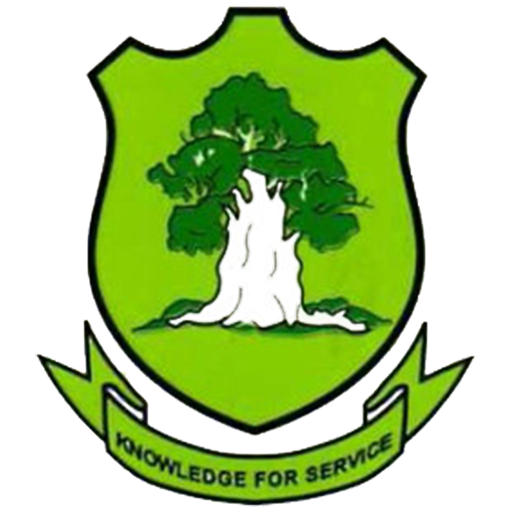Scientists, Academicians And Researchers Meet To Find Solutions To Climate Change And Its Adverse Effects.
A team of Researchers, Scientists and Academicians have met the Tamale Campus of the University for Development Studies (UDS) on 23rd November 2022 to discuss and to find ways of tackling with climate change and its adverse effects on crops and livestock. During the event, with funding from the German Federal Ministry of Education and Research (BMBF) through DLR, a Decision Support for Strengthening Land Resilience in the face of global challenges (DecLaRe) was launched.
The Vice-Chancellor of the University for Development Studies, Prof. Seidu Al-hassan welcomed the participants to the University and urged them to continue to work hard to find a lasting solution to the threats posed to crops and livestock by climate change. He said UDS was open for collaborations with other universities and organisations in the areas of research and knowledge sharing.

The DecLaRe Project Coordinator in Ghana, Ing. Dr. Linda Dari, made a presentation on the selection of study sites for the project and led the team to study, observe and perform experiments on some of the selected sites during the field trip to Busunu in the Savannah region.
The team visited women’s groups who are into shea butter processing in Busunu and its surrounding communities to study and understand how the production process is carried out at the local level. The entourage from the DecLaRe project on the tour were impressed to with the level and quality of production of shea butter products such as liquid soap, black soap and cooking oil.

The team made two stops – first at at a cashew farm and second, at the Savannah Development Company (SADEVCO). The owner of the cashew farm Mr. Jakpa Bawa explained that, but for the inconsistent rain pattern in the last few years, his yield could have been more than double of what he currently produces. At the SADEVCO the team was introduced to the greenhouse technology the company employs in order to have an all-year-round farming system through which they are able to cultivate bell pepper, cucumber, tomatoes and lettuce.
The project is set to focus on where and how crops and livestock can be sustainably produced under climate change and ecosystem boundaries on available land and use a diverse set of methodologies including novel ones to deliver decision-support recommendations and sustainable pathways that will enable scalable innovations in crop production and animal husbandry in the northern areas of Benin and Ghana.

The project also seeks to build capacities at both Master’s and Doctoral levels in WASCAL’s 11 member countries including Ghana and Benin. Member countries considered the project as a unique opportunity to further engage with partners on three 3 research priorities themes namely, land use and land degradation, risk and availability to climate extremes and lastly, sustainable agriculture and climate smart landscapes. PhD fellows were introduced and integrated on to the project to help curb climate change and its adverse effects in their various fields of study. Professor Andreas Buerkert in his remarks during the launch of the project admonished the PhD fellows to prepare for the unexpected in their academic life as they may face some challenges. He reiterated the need for the team to make the project meets its goal of mitigating climate change most especially around crops and livestock. Dr. Sophie who also made a presentation at the launch, calls for innovation methodologies to be adopted so as to tackle climate change and its related challenges.
The project partners include the University for Development Studies Tamale, University of Kassel Germany, University of Hohenheim Germany, University of Gottingen, Ghana Statistical Service, Potsdam Institute for Climate Change and West African Science Service Centre on Climate Change and Adapted Land Use (WASCAL) in Burkina Faso.
The PhD fellows who were integrated in the project made also made presentations across several topic which seeks to tackle climate change and its adverse effects on crops, land and livestock. The topics presented covered from animal husbandry, nutrition, soil fertility, climate change and land use, soil survey, land tenure, livelihoods resilience, current land use systems, crop production, ecosystem services and sustainable land use.
Dr. Belko Abdoul-Aziz Diallo from the West African Science Service Centre on Climate Change and Adapted Land Use (WASCAL) in Burkina Faso, in his remarks seized the opportunity to thank the BMBF for providing generous funding for the project. He also thanked all the scientific experts who worked tirelessly over the past year to put together the winning project with emphasis on their continued commitment to the sustainable development of land and productivity of its natural resources in the midst of climate change in the West African region.
He also extended special thanks to Professor Andreas Buerkert and Dr. Sophie Graefe for their excellent coordination role so far. Dr. Belko further expressed his sincere appreciation to all who helped in making the event possible. “A big thank you goes to the Vice Chancellor (our chief host), the entire university management, as well as the local organizing committee of this great University for Development Studies (UDS) for organizing and hosting this important event. We couldn’t have come here today without you” He added.
Story by:
Hamdan W. Amadu (University Relations)




